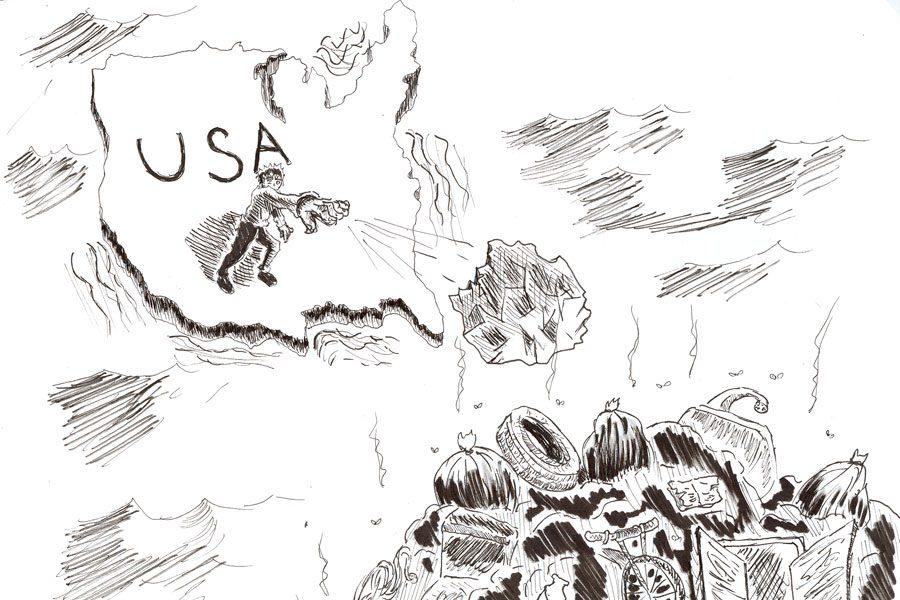Students should be more eco-friendly
Students should start paying more attention to where they put their trash before they end up living in it.
November 9, 2016
Regardless of their stance on global warming, everybody should be recycling as a citizen of Earth. Recycling is a quick and easy way to reduce the detrimental energy that is used for the production of other wasteful products.
Production and other polluting factors such as transport are increasing the amount of harmful gas in the atmosphere. These gasses in return are causing the global temperature to rise. Rising temperatures cause a change in weather patterns, which have devastating effects such as more natural disasters and problems in agriculture.
These problems do not disrupt the life of everyone, but those who are affected are usually the ones who contribute the least. In 2012 alone, natural disaster-related damages cost $100 billion and affected 125 million people worldwide. Over 90% of those persons most severely affected by climate change were from developing countries that have contributed least to global carbon emission.
Developing countries do not have access to resources needed to protect and rebuild themselves after a devastating natural disaster. In numerous speeches and published writings, Pope Francis has called for more care of creation and even said: “there is a clear, definitive and ineluctable ethical imperative to act.” Recycling is a clear, definitive and ineluctable way to ensure companies do not need to produce as many harmful materials and also reduce the size of landfills.
Choosing not to recycle increases the amount of trash that just sits in landfills. Some of these items like glass never decompose and many of the items that are put in landfills take hundreds of years to decompose. While “environmental justice” may be nonexistent to some and daunting to others, paying more attention to where you put your trash is a small way to ensure you do not end up living next to a land







